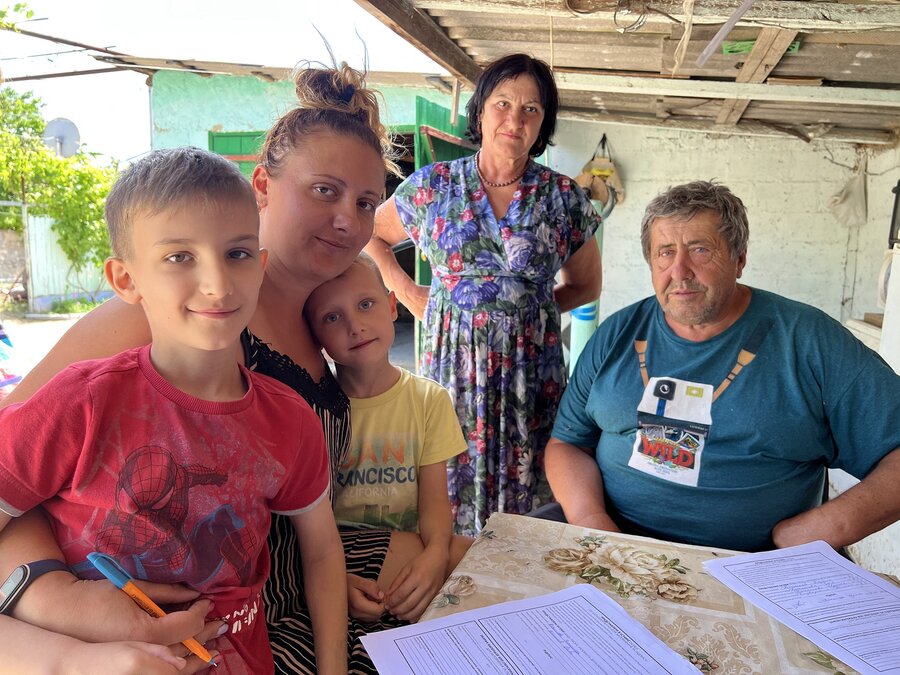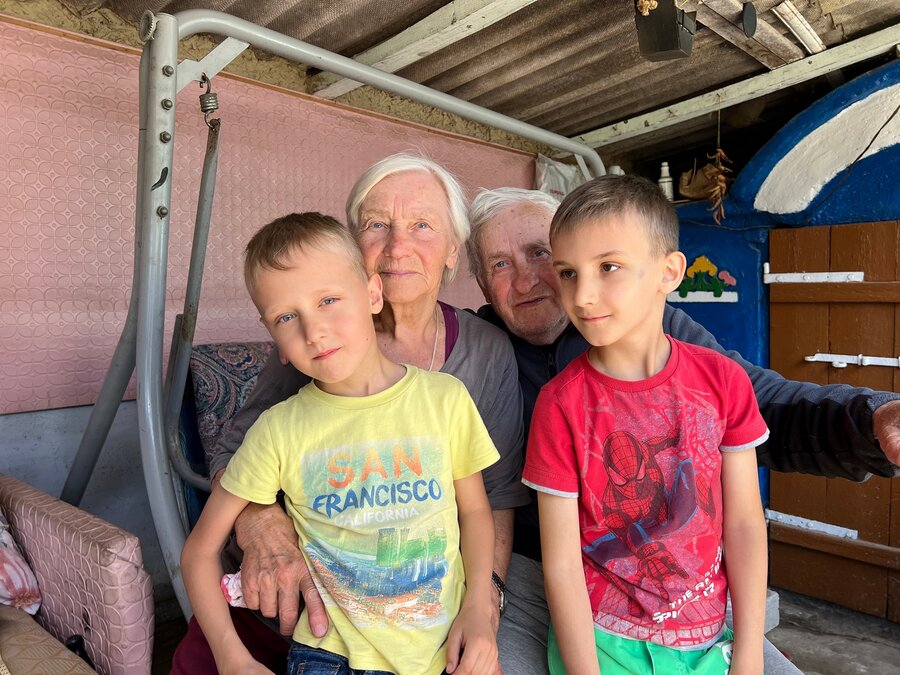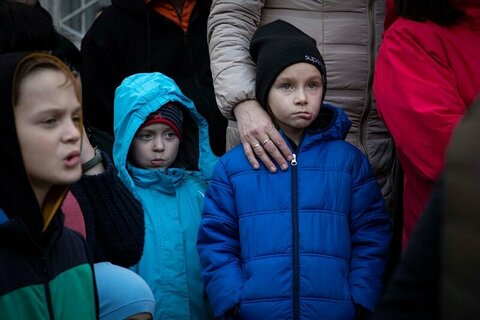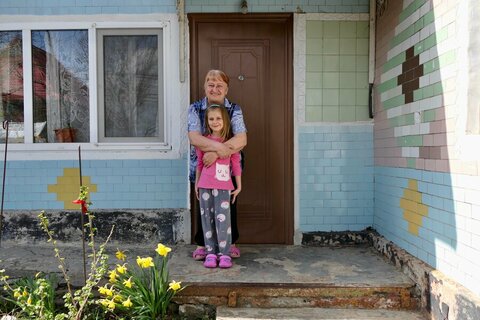War in Ukraine: WFP cash grants help families in Moldova host refugees

When the war in Ukraine started, Anna and her husband, Anatol, were worried for their daughter Zainada and grandchildren living in Mykolaiv across the border in Ukraine. Then their daughter called.
“We were grateful that they were safe, and they were coming home stay with us,” says Anatol. “We were also excited to have our grandchildren come and stay with us. We had not seen them for a while.”
He offered to pick them at the Palanca border, 140km away from their village of Parata in the Criuleni district of Moldova.
Everyone believed this arrangement would be a couple of weeks and when the war was over the family could go home. But they were wrong. It is almost five months now and Anatol and Ana are still hosting refugees. Relatives, friends and total strangers subsequently called on Anatol and asked to be hosted.

The World Food Programme (WFP) provides cash assistance to Moldovan households hosting one or more refugees from Ukraine, to help them meet their food and other essential needs.
“Our aim is to ensure Moldovan families are not forced to make tough choices between buying food or paying for heating because of their generosity and compassion towards refugees,” says Douglas Mercado, WFP Emergency Coordinator in Moldova.
“Initially this was meant to be a one-off cash assistance. However, our regular assessments at household levels and the spike in the cost of food indicate increasing risks of food insecurity among the Moldovan population. We have to make sure that they are protected,” he adds.
“At one point we had 15 people staying in this house. It was challenging but we could not turn anyone away. We know the situation in their country,” says Anna. “They need us. They need our help. We told our daughter, just bring them, we will manage somehow.”
The local community came together to offer help with bedding and other essential items. Anatol and Anna turned every single space in their house into sleeping area to accommodate as many refugees as possible.
They are retired civil servants but only Anna receives a monthly pension of 2,000 Moldovan Leu (about US$100).
War in Ukraine: WFP marks three months of meeting surging food needs

While refugees get cash assistance from the UN Refugee Agency to cover their day-to-day expenses, the bulk of household costs including food, gas and other essential needs are taken care of by their host.
“They came in the middle of winter with children and sick older people,” says Anna. “We had to make sure that the house is comfortable and that they get proper food. Our household costs went up overnight. But we feel it’s our responsibility to help, so we help in whatever way we can.”
Since the war in Ukraine started, over half a million people are estimated to have fled from Ukraine into Moldova. Though most moved on to other countries, at least 88,000 refugees remain in Moldova. The country now hosts the highest number of Ukrainian refugees per capita of any country in the world.
Hello, goodbye: Host families in Moldova forge bonds with refugees escaping war in Ukraine

The Government and the people of Moldova have been generously assisting the incoming refugees. However a weakening economy, made worse by the impact of Ukraine crisis, is causing a spike in prices of food and other essential services and further threatening the lives and livelihoods of Moldovan families themselves.
Moldova is experiencing the highest inflation rate since 2007. At the same time, the cost of food is increasing and this is putting already vulnerable families under increased stress.
So far WFP, alongside its partners, has issued two rounds of cash assistance worth US$4 million to more than 10,500 families. The registration process for the third round is underway to continue support to those generous Moldovan households accommodating refugees.
“The cash we received has been really helpful. I used it to pay for gas and other utility bills which have become expensive. It’s hard to pay our bills with just the little pension my wife receives,” says Anatol.
In the middle of summer, host families are acutely aware of energy costs winter will bring.
The cash-based assistance program, part of WFP’s response to the Ukraine crisis in Moldova, was launched on 25 March, in collaboration with the Ministry of Labor and Social Protection, UN Refugee Agency (UNHCR) and other Cooperating Partners.
